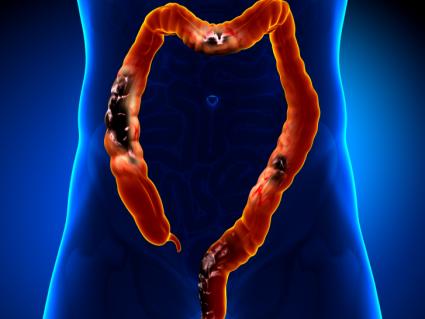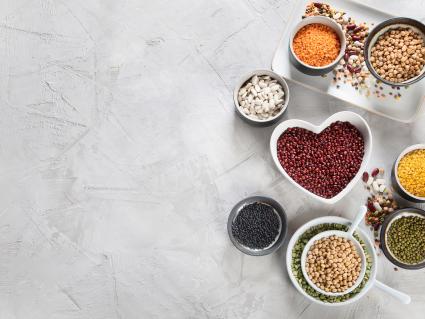Colorectal Cancer: Do You Know The Facts?

Colorectal cancer is the third most common cancer in the United States.
March is colorectal cancer (CRC) awareness month! Did you know that colorectal cancer is the third most common cancer in the United States? Men and women have an equal risk for developing the disease—a risk of about 1 in 20.
Although some risk factors for CRC cannot be changed, such as age older than 50 years, African American race, personal and family history of CRC or polyps, and inherited syndromes (familial polyposis and Lynch syndrome), lifestyle risk factors, including nutrition, can be modified. Lifestyle risk factors for CRC include eating a low-fiber, high fat diet (Standard American Diet), sedentary lifestyle, obesity, and tobacco and alcohol use. The metabolic syndrome, specifically hyperinsulinemia, has been linked with a higher chance of CRC. A study in the Archives of Internal Medicine showed that those who eat the typical Standard American Diet featuring red meat, sweets, desserts, fried foods, and refined grains had a 50% greater chance of developing CRC than those who consumed few of those foods.
We know that up to 70% of CRC cases can be prevented by the following diet and lifestyle changes: avoidance of red meats (especially charred), processed meat, and refined carbohydrates; maintenance of healthy body weight (body mass index less than obese); avoidance of hyperinsulinemia/metabolic syndrome; maintenance of recommended activity levels; and avoidance of alcohol and tobacco. Nutrition should focus on a whole-food plant-based diet, such as the Mediterranean or Anti-inflammatory diet. A diet high in fiber, fruits and vegetables, and fish, and low in red meats is protective against CRC.
In patients who have had early stage CRC and underwent standard therapy, prospective observational studies have shown that increased exercise after diagnosis, avoidance of a Standard American Diet, lower glycemic load diet, eating calcium-rich foods, and increased vitamin D levels were associated with a reduced risk of cancer recurrence and improved overall survival.
Several nutrients have demonstrated protective effects for CRC; some of these include garlic, curcumin, flaxseed meal, folic acid, indole-3-carbinol (in cruciferous vegetables), L-glutamine, mushroom extracts (maitake, reishi, Cordyceps, and others), omega-3 fatty acids (EPA and DHA), probiotics, quercetin, resveratrol, as well as vitamin D and calcium.
Taking a proactive nutritional approach by eating a plant-based, whole-foods diet rich in fiber and low in glycemic index is a prudent part of decreasing CRC risk for us all.





















